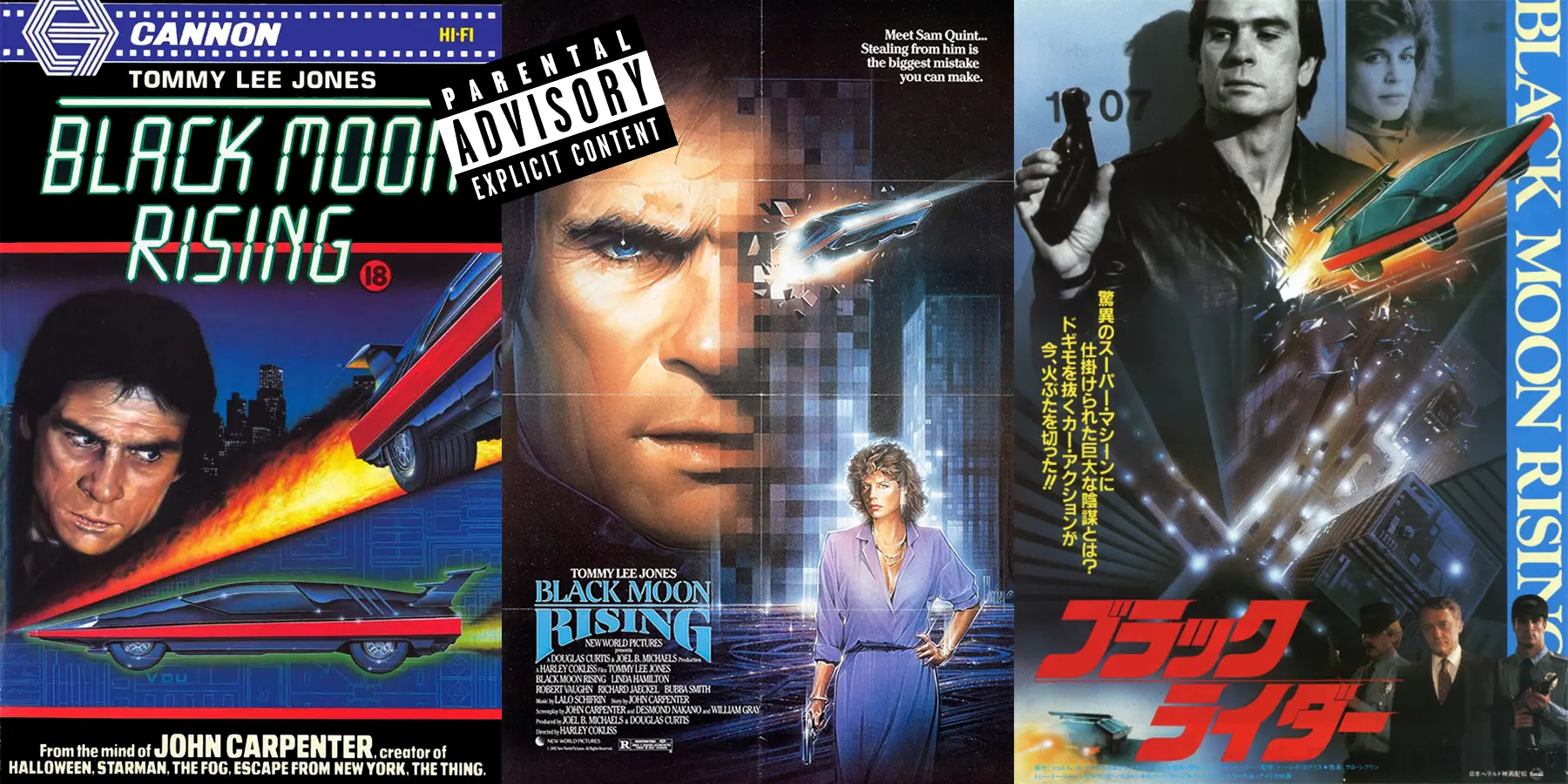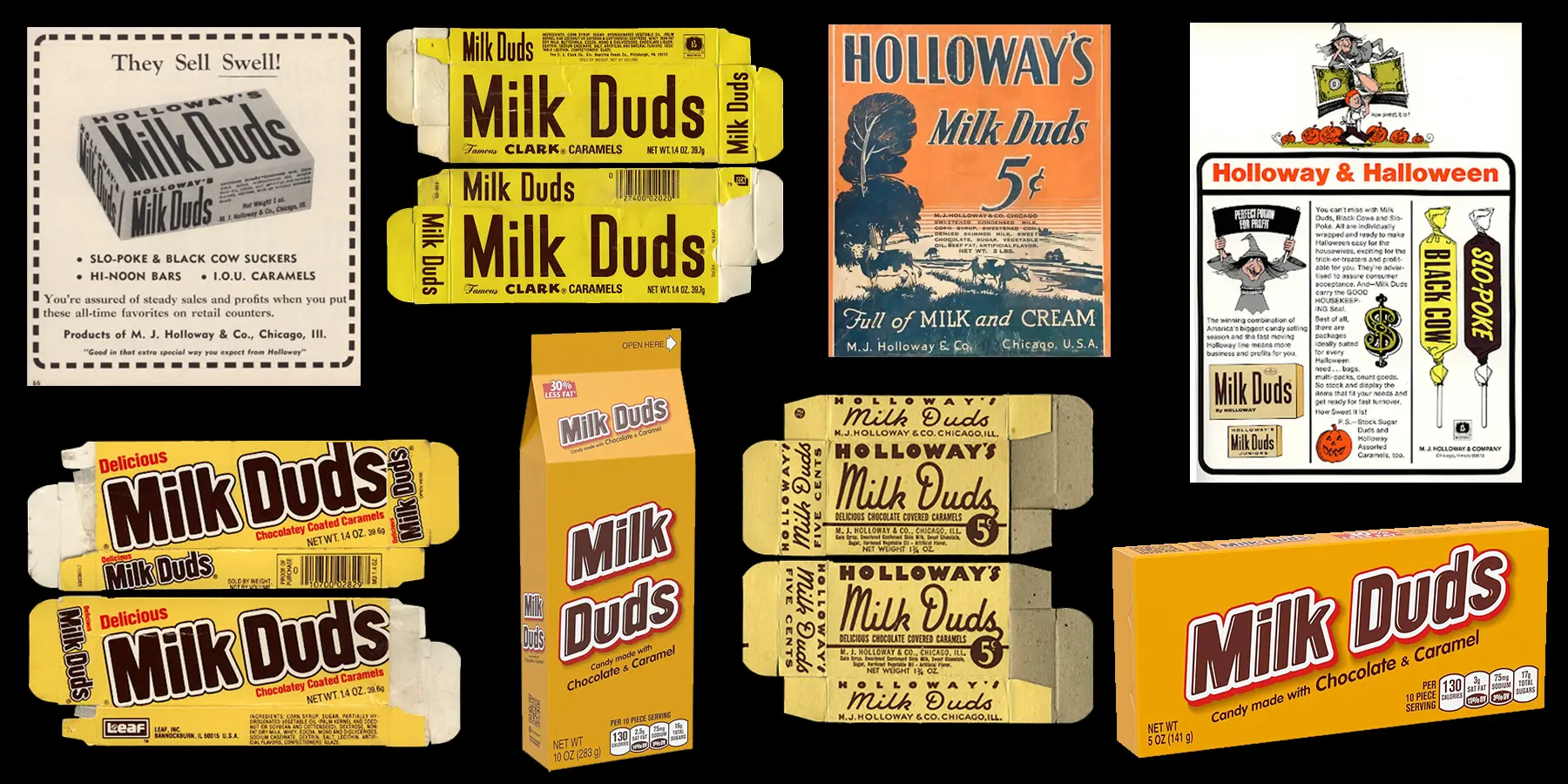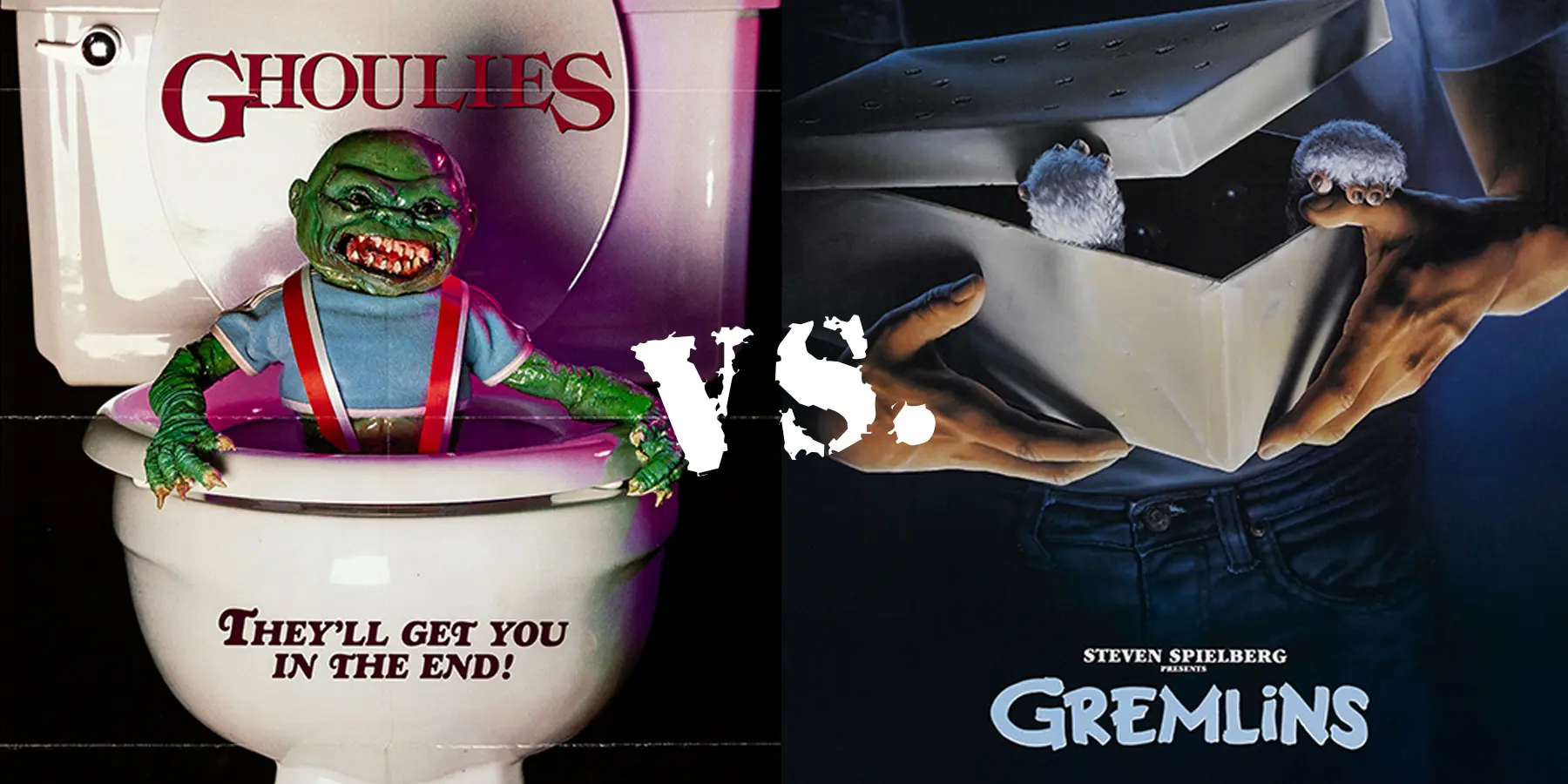They skittered, they slithered, they stomped entire cities into rubble—and they terrified a generation of moviegoers huddled beneath the glow of the drive-in screen. The 1950s were a golden age of giant monster mayhem, where insects weren’t the only ones growing to building-sized proportions. From irradiated ants to prehistoric sea beasts, these films were dripping with Cold War anxiety, scientific paranoia, and a hearty helping of B-movie brilliance.
This wasn’t just creature horror—it was a cultural x-ray of postwar America’s deepest fears. Nuclear testing, scientific overreach, and the unknown powers of evolution and mutation gave rise to some of the most imaginative (and at times delightfully absurd) monsters ever committed to celluloid.
Below is your essential guide to the Top 20 Giant Creature Features of the 1950s, with plot synopses, behind-the-scenes trivia, atomic themes, and the mutant magic that keeps these films beloved by fans even today. Buckle in—and maybe bring some bug spray.
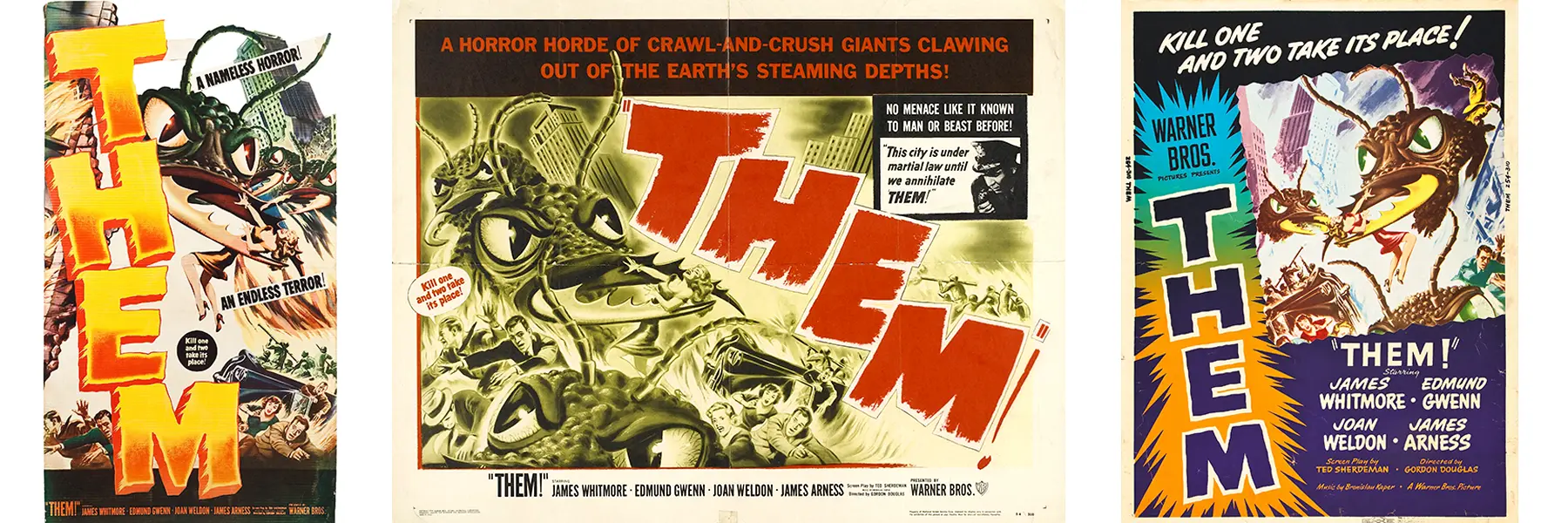
1. Them! (1954)
Synopsis: Giant, irradiated ants tunnel out of the New Mexico desert, threatening all of humanity.
Cast/Director: James Whitmore, James Arness, Edmund Gwenn. Directed by Gordon Douglas.
Filming Location: L.A. River drainage tunnels stood in for the ants’ lair.
Production Note: Originally planned as a 3D color film, but shot in black and white due to budget cuts.
Why It Stands Tall: The king of all bug movies—chilling, suspenseful, and surprisingly smart.
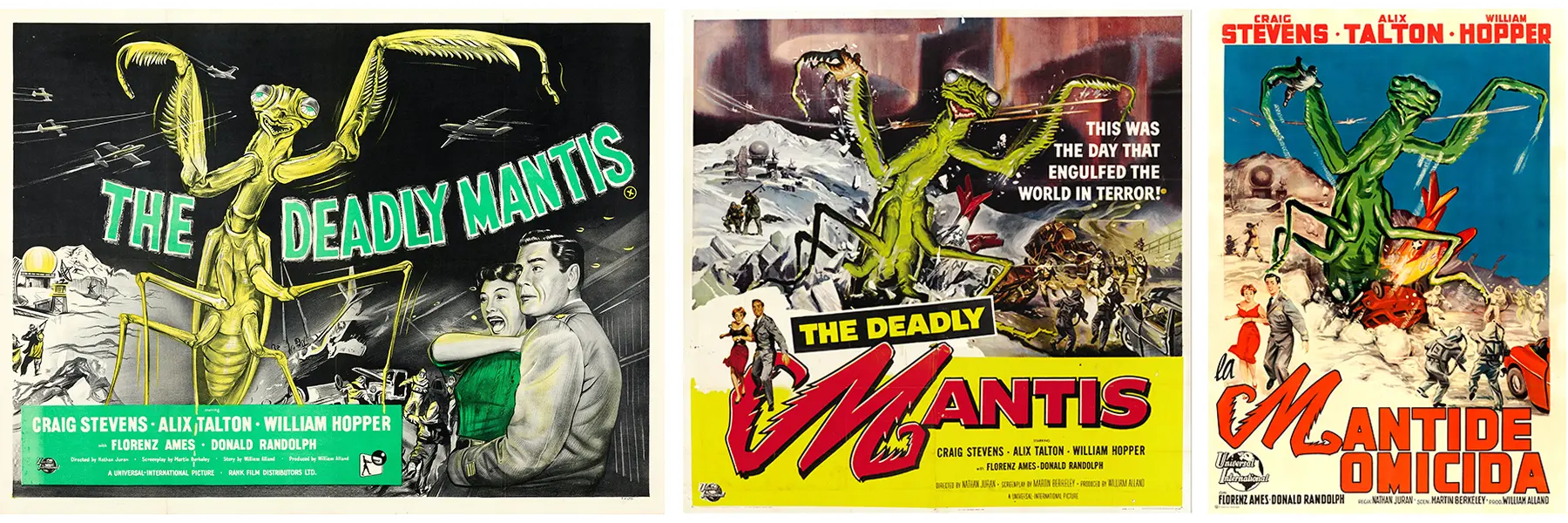
2. The Deadly Mantis (1957)
Synopsis: A prehistoric mantis is thawed from Arctic ice and begins a deadly rampage.
Cast/Director: Craig Stevens, William Hopper. Directed by Nathan Juran.
Locations: U.S. Air Force bases were used for realism.
Special Effects: A large-scale puppet paired with rear projection.
Theme: Cold War fears thawed out, quite literally.
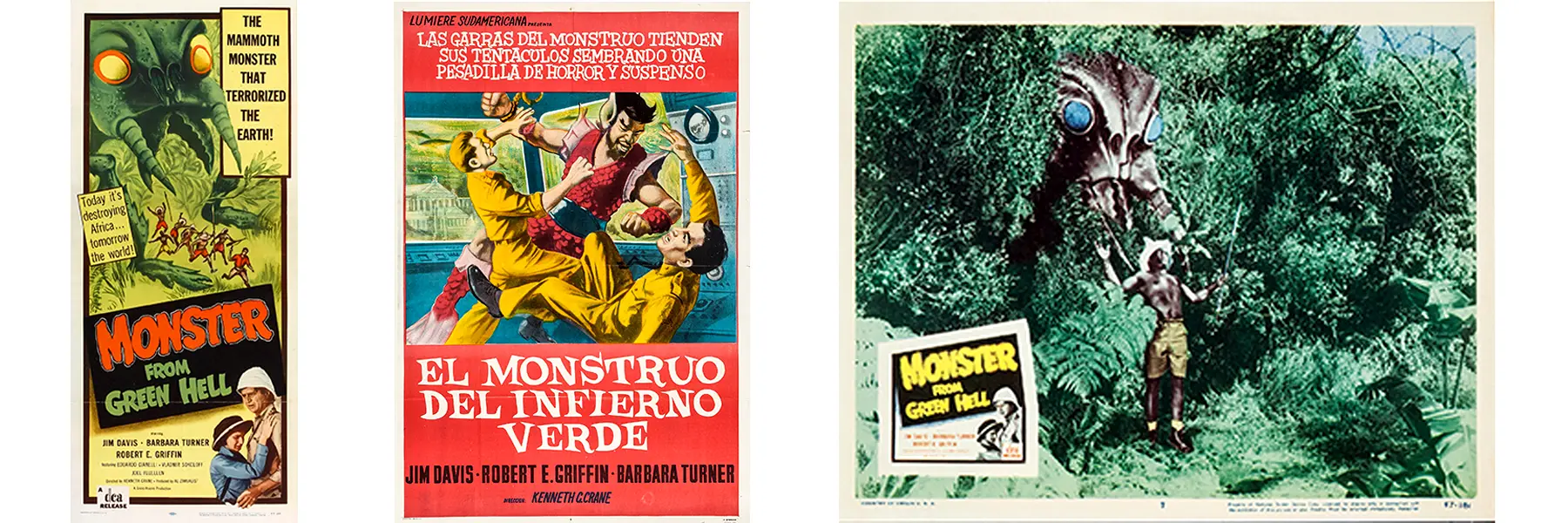
3. The Monster from Green Hell (1957)
Synopsis: African insects mutate into giant wasps thanks to cosmic radiation.
Cast/Director: Jim Davis. Directed by Kenneth Crane.
Fun Fact: Heavy use of stock African footage and stop-motion clay wasps.
Mutation Station: One of the more exotic entries in the genre.
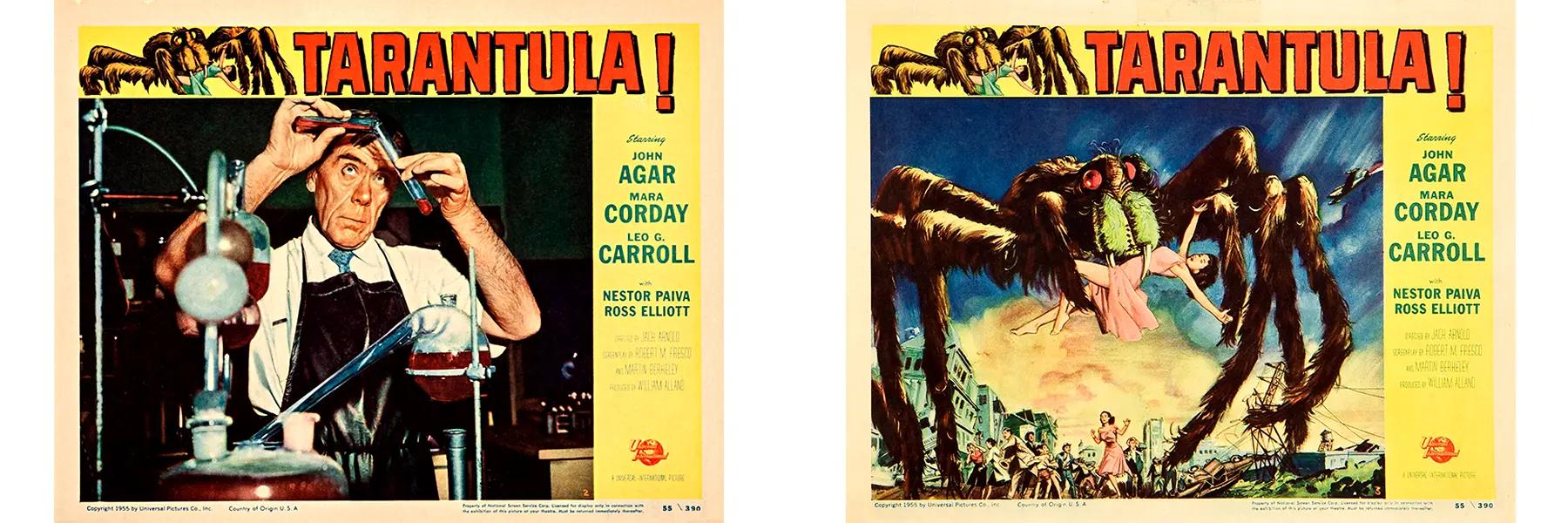
4. Tarantula (1955)
Synopsis: A scientist’s growth serum produces a colossal tarantula that escapes into the desert.
Cast/Director: John Agar, Mara Corday, Leo G. Carroll. Directed by Jack Arnold.
Effects: A real tarantula filmed on miniature sets—creepily effective.
Legacy: A textbook tale of scientific hubris gone wild.
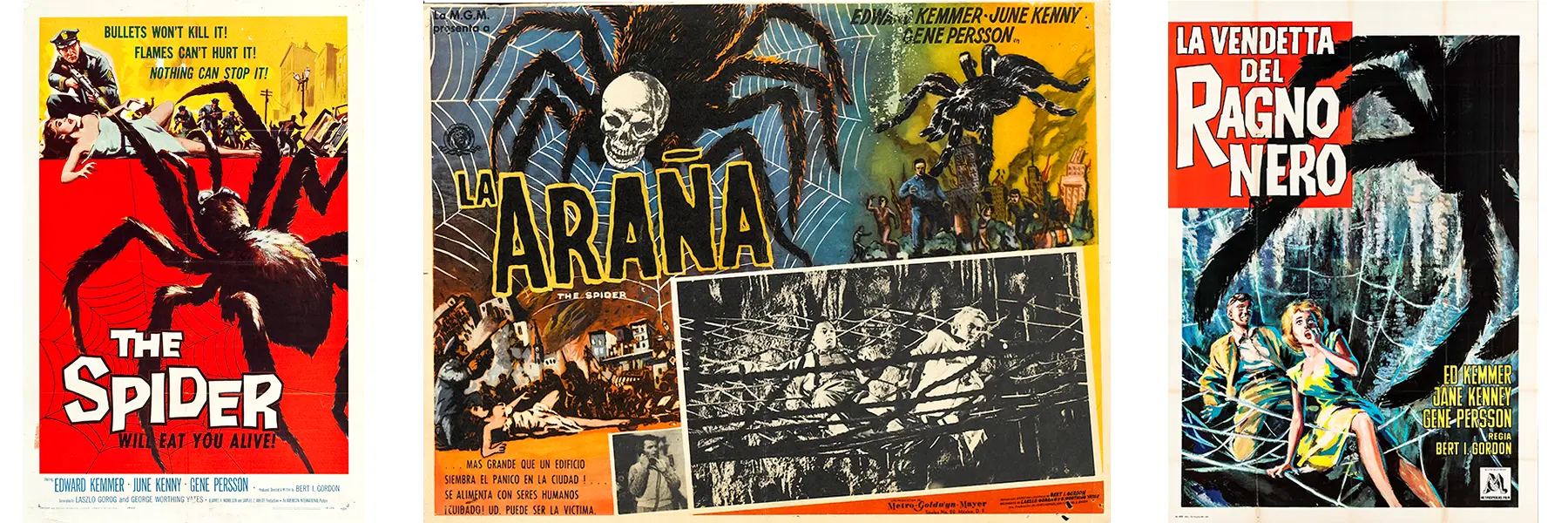
5. Earth vs. The Spider (a.k.a. The Spider) (1958)
Synopsis: Teens stumble upon a giant spider in a cave—then it escapes!
Cast/Director: Ed Kemmer. Directed by Bert I. Gordon.
Effects: Rear projection of a real tarantula.
Teen Trouble: One of the era’s most youth-oriented bug flicks.
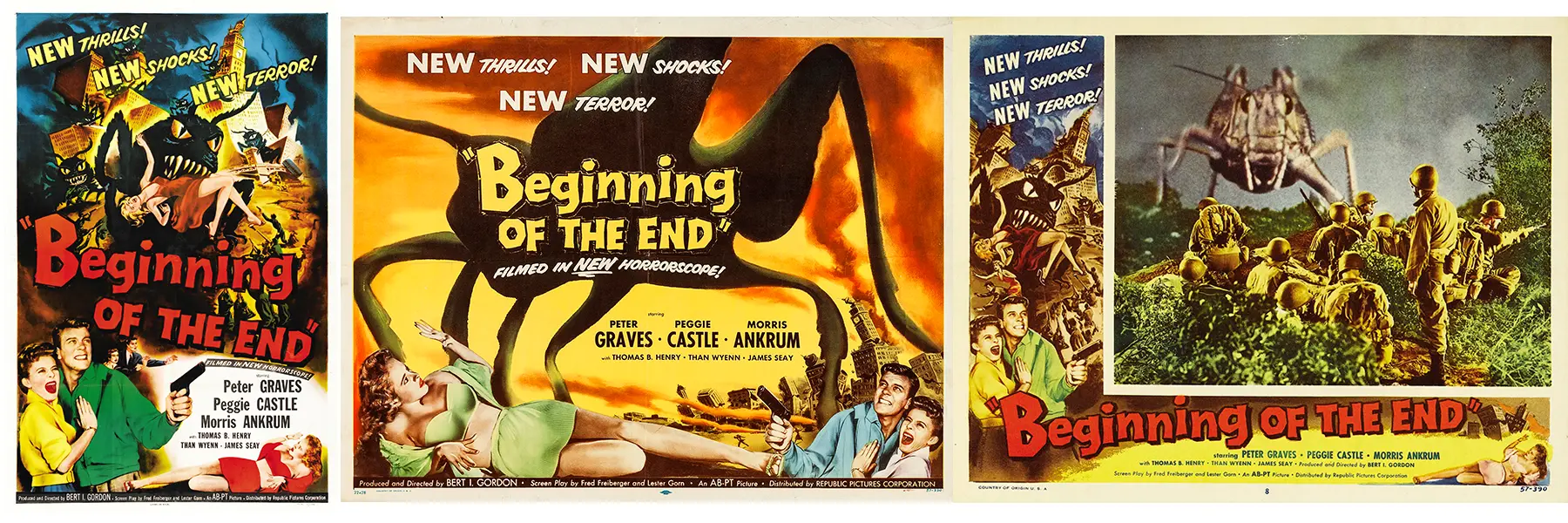
6. Beginning of the End (1957)
Synopsis: Radioactive crops create giant locusts that descend on Chicago.
Cast/Director: Peter Graves. Directed by Bert I. Gordon.
Behind-the-Scenes: Grasshoppers crawled on miniature Chicago sets.
Bug Budget: Low on cash, high on charm.
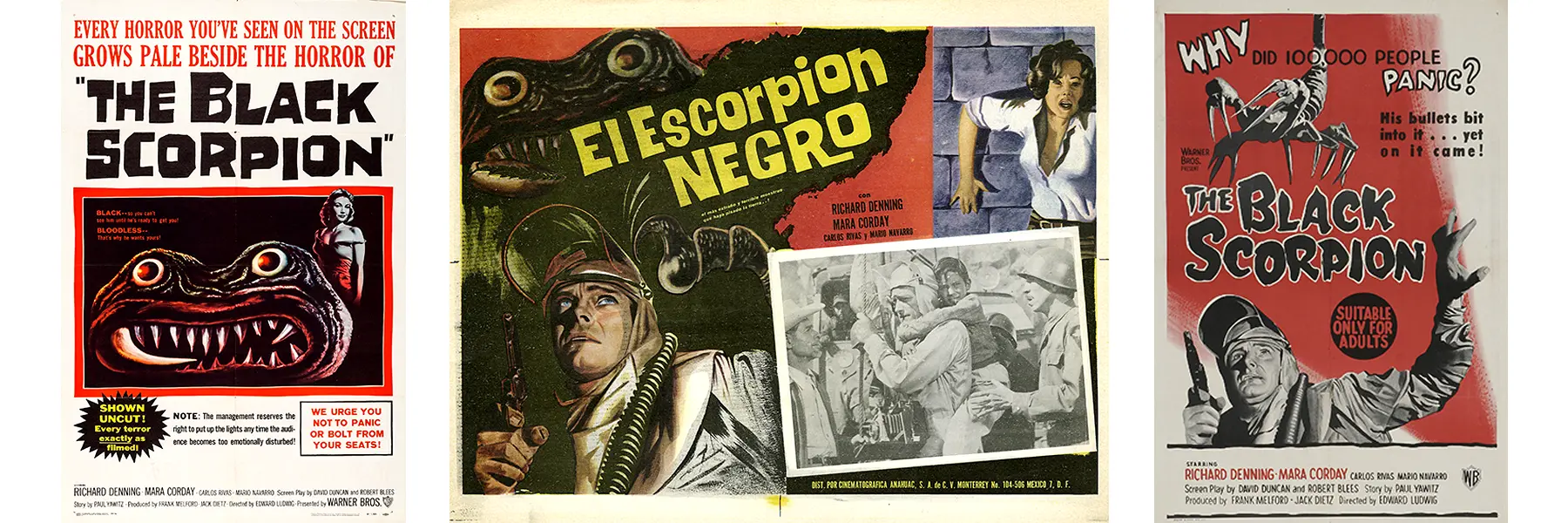
7. The Black Scorpion (1957)
Synopsis: Earthquakes release giant prehistoric scorpions in Mexico.
Cast/Director: Richard Denning, Mara Corday. Directed by Edward Ludwig.
Special Effects: Stop-motion magic by King Kong legend Willis O’Brien.
Monster Mayhem: One of the most technically impressive entries.
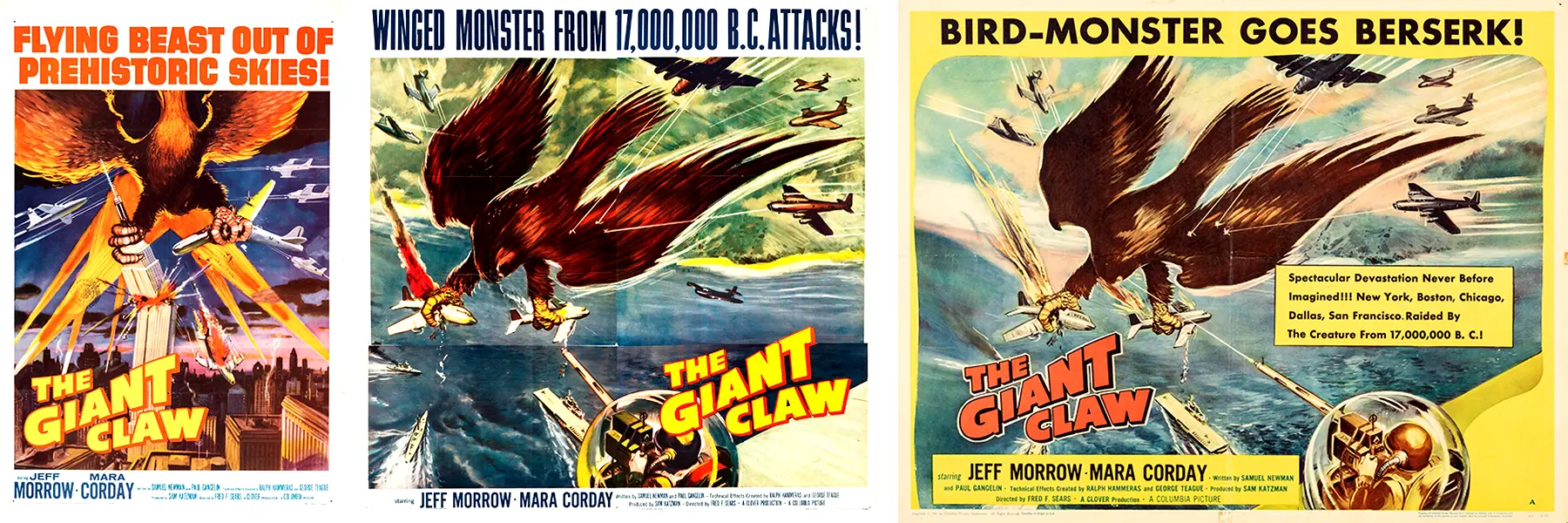
8. The Giant Claw (1957)
Synopsis: A giant alien bird from anti-matter space attacks Earth.
Cast/Director: Jeff Morrow, Mara Corday. Directed by Fred F. Sears.
Effects: Famously awful marionette, but now beloved for it.
Cult Status: A “so bad it’s awesome” essential.
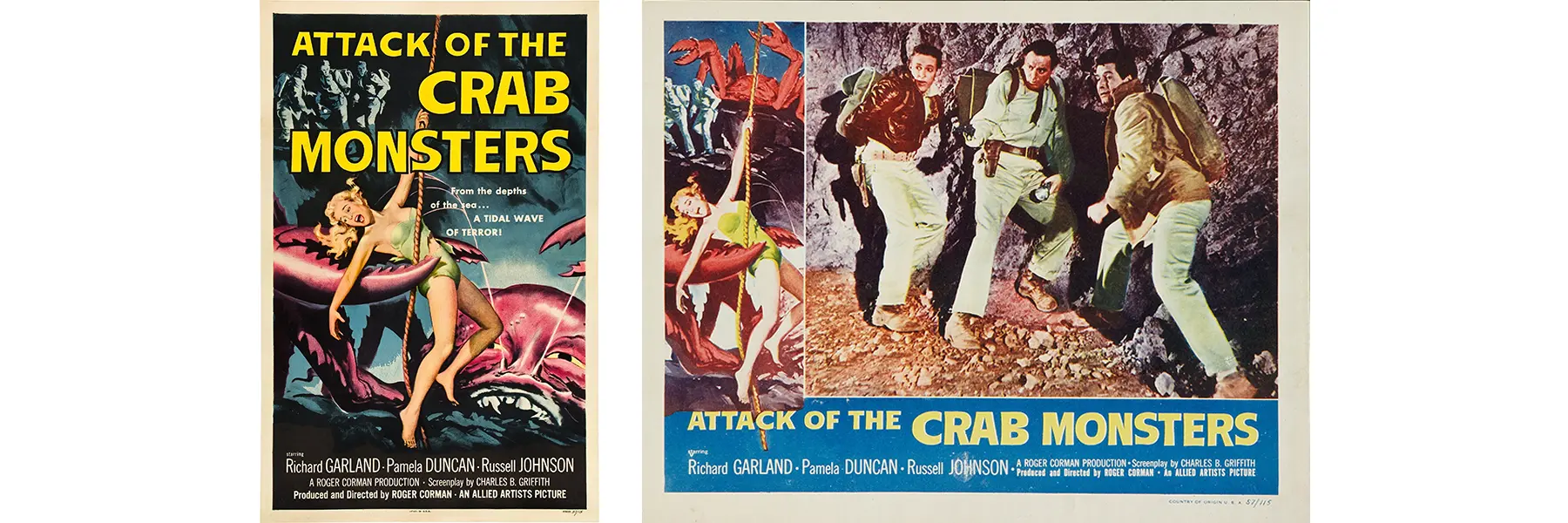
9. Attack of the Crab Monsters (1957)
Synopsis: Mutated, psychic crabs wreak havoc on a remote island.
Cast/Director: Richard Garland, Pamela Duncan. Directed by Roger Corman.
Budget: A tiny $70,000—huge drive-in success.
Intelligent Crustaceans: You’ll never look at a crab the same way again.
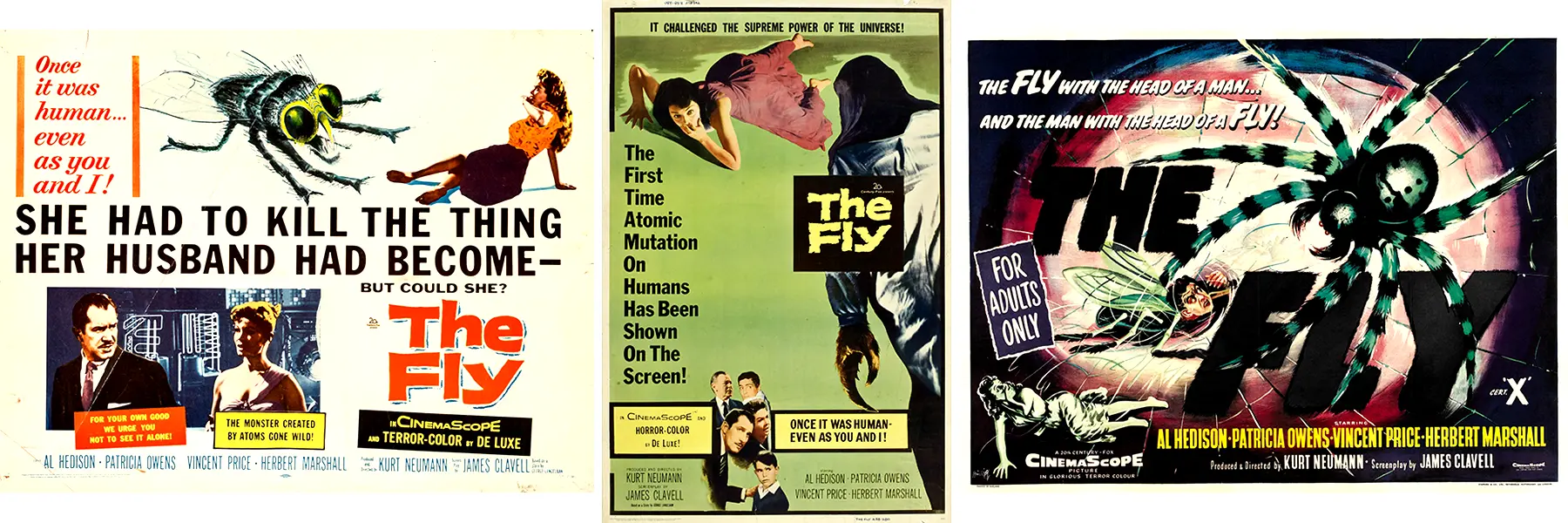
10. The Fly (1958)
Synopsis: A teleportation experiment fuses a scientist with a fly—with tragic results.
Cast/Director: Vincent Price. Directed by Kurt Neumann.
Why It Sticks: More cerebral than crawly—elevated the genre with horror and heartbreak.
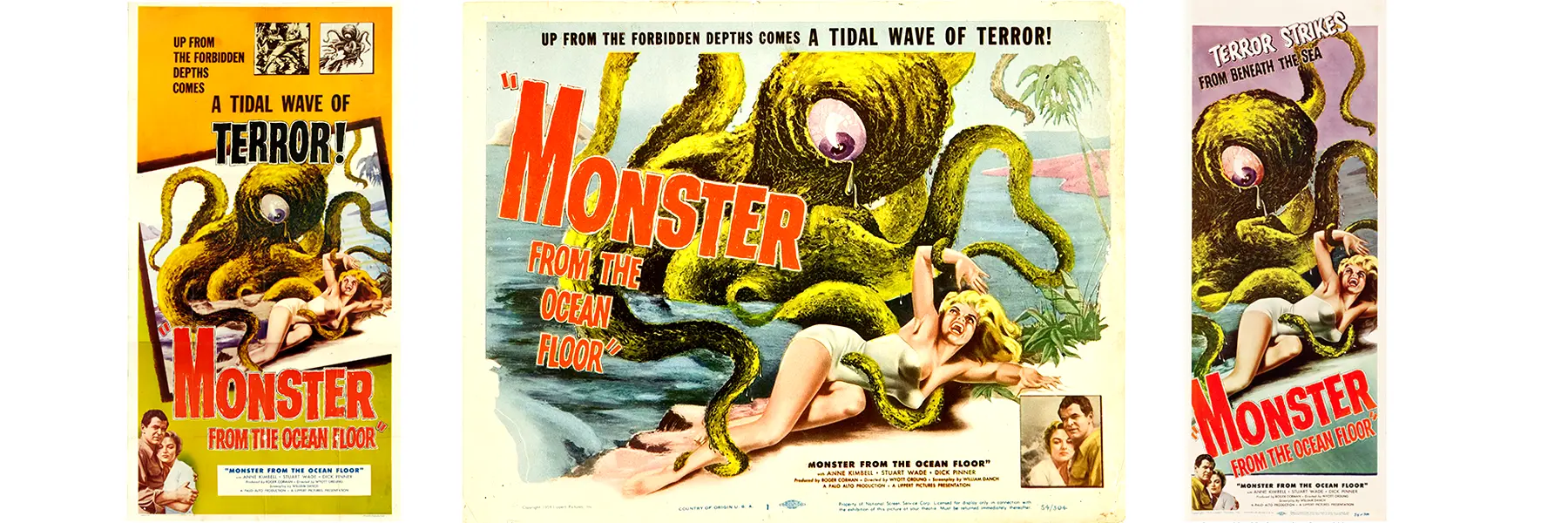
11. Monster from the Ocean Floor (1954)
Synopsis: A mysterious underwater creature terrorizes coastal Mexico.
Director: Wyott Ordung.
Notable Note: One of Roger Corman’s first productions.
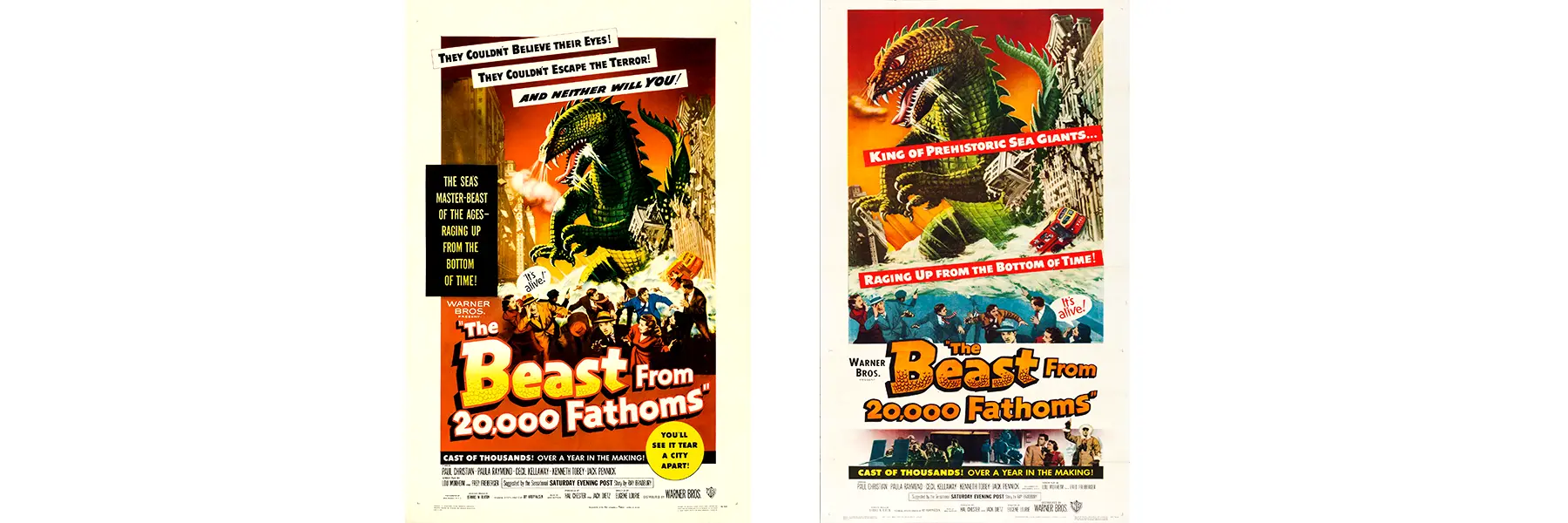
12. The Beast from 20,000 Fathoms (1953)
Synopsis: A dinosaur awakened by an atomic test attacks New York.
Director: Eugène Lourié.
FX Royalty: Stop-motion by the one and only Ray Harryhausen.
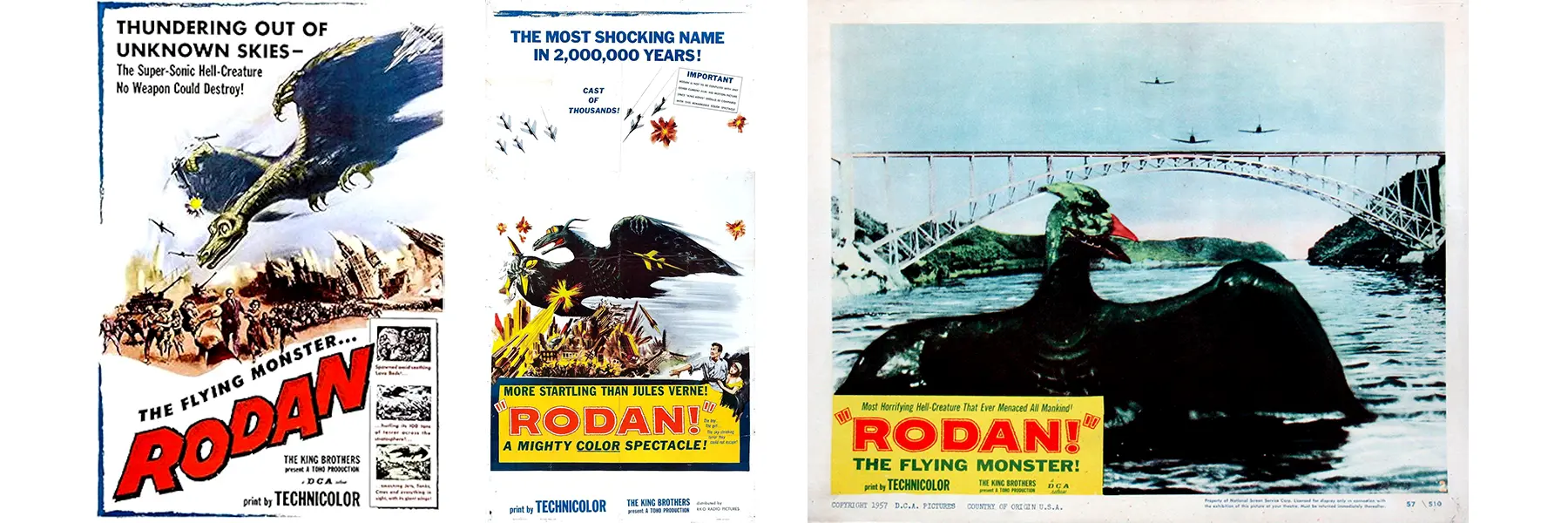
13. Rodan (1956)
Synopsis: Giant prehistoric pterosaurs devastate Japan.
Director: Ishirō Honda.
Cultural Moment: A Toho Studios masterpiece that helped launch kaiju mania.
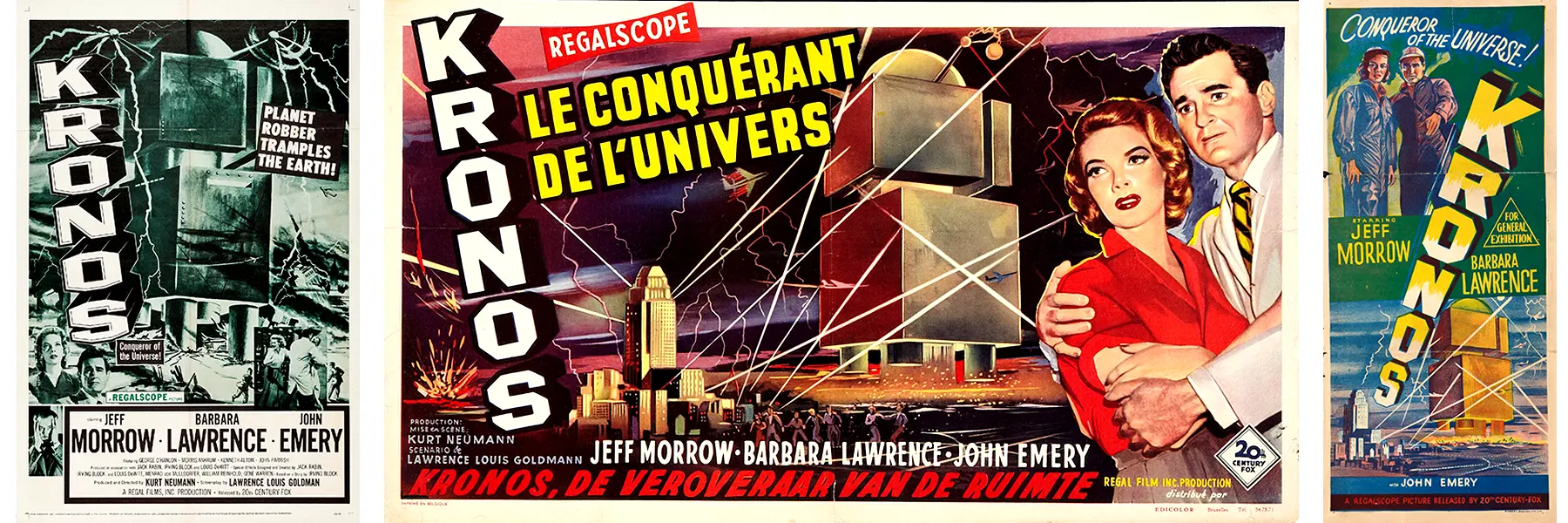
14. Kronos (1957)
Synopsis: A giant energy-absorbing robot lands to drain Earth’s power.
Cast/Director: Jeff Morrow. Directed by Kurt Neumann.
Sci-Fi Fusion: More robot than bug—but still a giant, lumbering metaphor for Cold War fears.

15. The Phantom from 10,000 Leagues (1955)
Synopsis: A sea monster guards a radioactive hotspot off the coast.
Special Effects: A man-in-suit classic with a plodding pace.
Nuclear Mystery: Government secrets + beach terror = 1950s perfection.
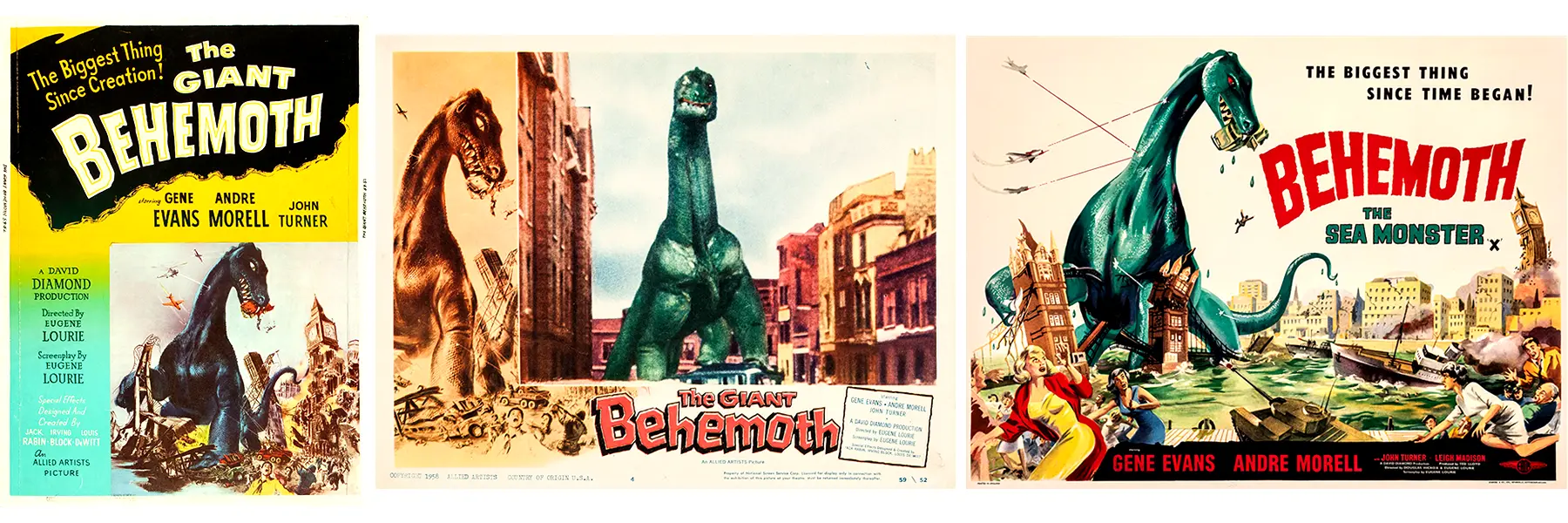
16. The Giant Behemoth (1959)
Synopsis: A radioactive sea creature terrorizes London.
Cast/Director: Gene Evans. Directed by Eugène Lourié.
Euro-Creep: A British entry into atomic creature carnage.
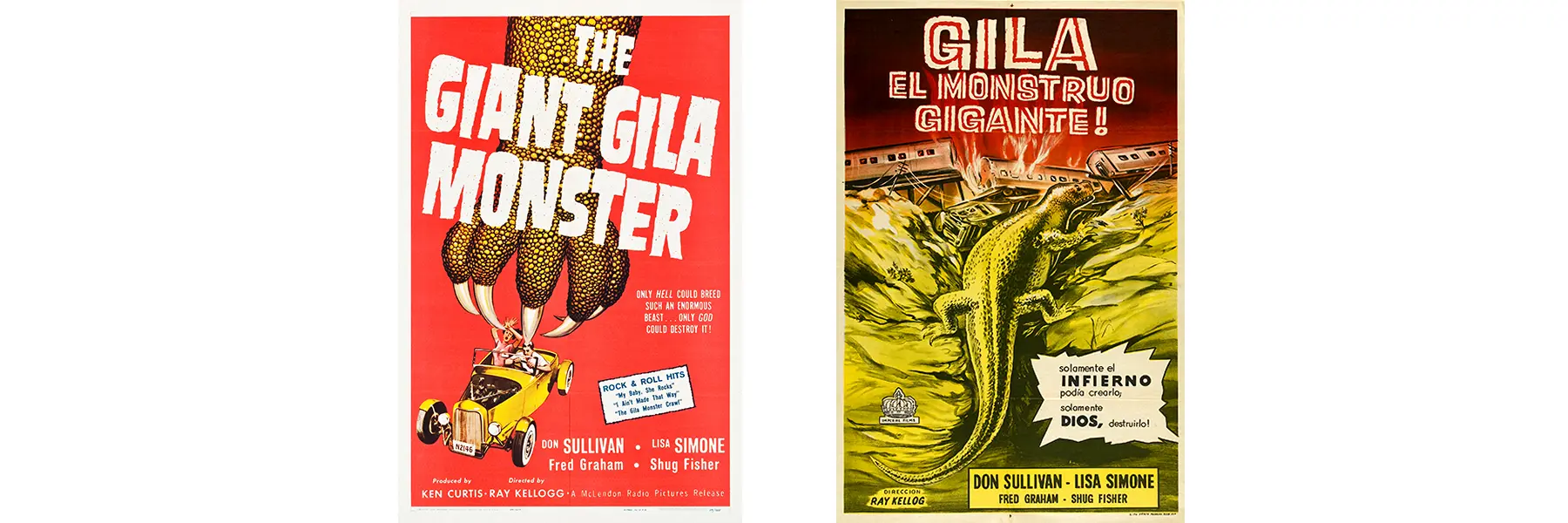
17. The Giant Gila Monster (1959)
Synopsis: A giant lizard wreaks havoc in a sleepy Texas town.
Cast/Director: Don Sullivan. Directed by Ray Kellogg.
Drive-In Darling: Classic low-budget regional horror.
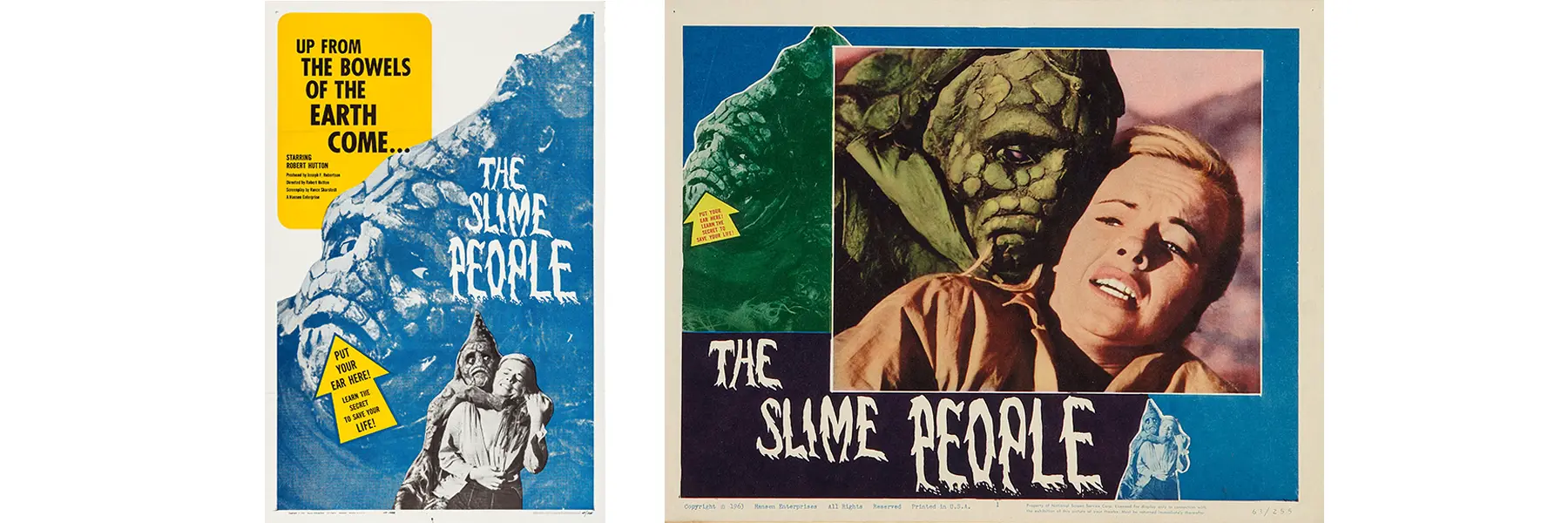
18. The Slime People (1959)
Synopsis: Humanoid sludge monsters emerge from beneath Los Angeles.
Effect Notes: Fog machines on overdrive.
Obscure but Oozing Charm: Gooey and goofy in all the right ways.
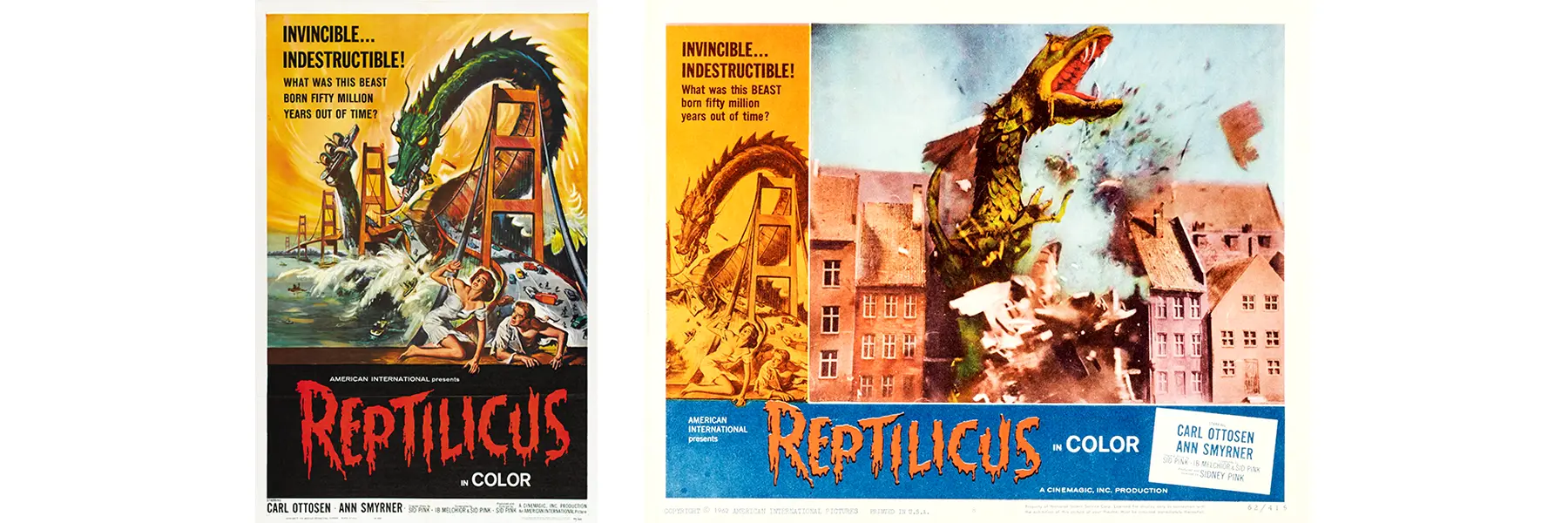
19. Reptilicus (1959)
Synopsis: A thawed prehistoric reptile destroys Denmark.
Production Quirk: Denmark’s monster answer to Godzilla.
FX? Wobbly puppet. Still a cult favorite.
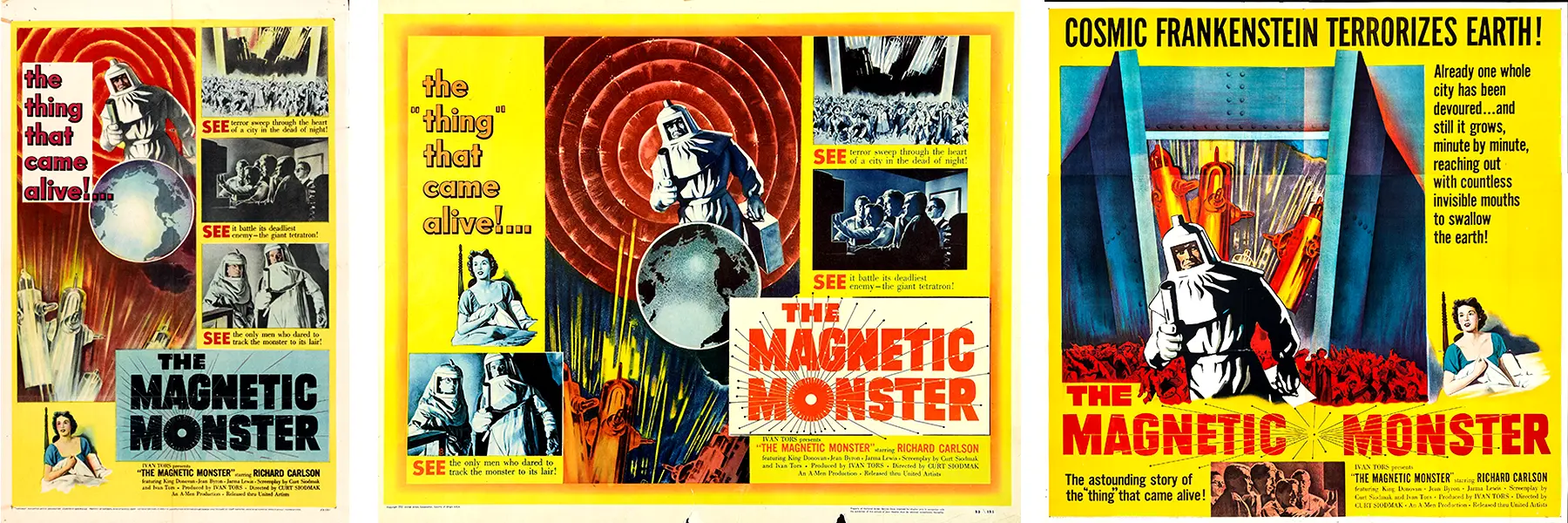
20. The Magnetic Monster (1953)
Synopsis: Scientists combat a radioactive isotope that grows uncontrollably.
Theme: The atomic age’s invisible terror given cinematic form.
Why Giant Bugs and Monsters Still Matter
Whether they had pincers, wings, claws, or radioactive breath, the creature features of the 1950s tapped into a primal fear: that the very forces meant to advance humanity—science, technology, even nature—might spiral out of control. These films were more than popcorn pulp; they were atomic-age allegories, dressed up in stop-motion and rubber suits.
Despite their low budgets and often laughable effects by today’s standards, these movies were packed with innovation and imagination. Filmmakers turned live tarantulas into skyscraper-sized threats, sculpted clay monsters frame-by-frame, and built miniature cities only to crush them on cue. The ingenuity still resonates.
From Them!’s militarized ants to Rodan’s sky-splitting roars, these creatures gave form to the invisible terrors of the era—radiation, invasion, extinction—and that’s why they’re still loved, studied, spoofed, and celebrated today. They remind us that beneath the surface of every B-movie beast lies something timeless: our fear of the unknown, and our fascination with the monstrous.


